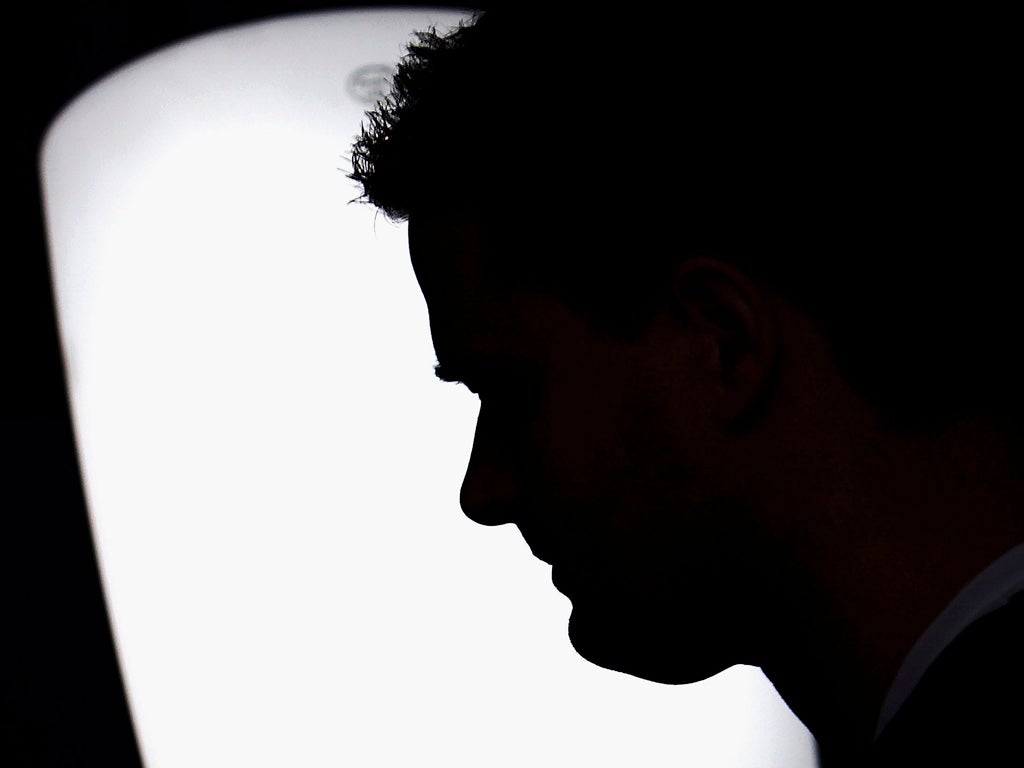Alastair Campbell: I feel for Stephen Fry. Nobody would wish depression on their worst enemy
Having depression is part of who I am, and it always will be


Your support helps us to tell the story
From reproductive rights to climate change to Big Tech, The Independent is on the ground when the story is developing. Whether it's investigating the financials of Elon Musk's pro-Trump PAC or producing our latest documentary, 'The A Word', which shines a light on the American women fighting for reproductive rights, we know how important it is to parse out the facts from the messaging.
At such a critical moment in US history, we need reporters on the ground. Your donation allows us to keep sending journalists to speak to both sides of the story.
The Independent is trusted by Americans across the entire political spectrum. And unlike many other quality news outlets, we choose not to lock Americans out of our reporting and analysis with paywalls. We believe quality journalism should be available to everyone, paid for by those who can afford it.
Your support makes all the difference.I felt really bad when I met Eric Clapton at a Test match at Lord’s a couple of years ago. Not bad as in depressed; in fact, I was rather happy. But bad in that since 3 March 1996, I have always associated Eric Clapton with deep depression, and a desire to match up dead feelings inside with an external reality – aka a suicidal thought.
It wasn’t his fault. He was his usual brilliant self, delighting thousands in a packed Albert Hall. It wasn’t my fault either. I was just depressed. Seven out of 10 depressed. I grade my depressions. Eight and a half is can’t-get-out-of-bed bad. Nine is can’t open my eyes, dress, shave, brush my teeth. At seven out of 10, with Clapton getting the rest of the crowd going, I could not hide how low I felt. Conversation was impossible. Other people’s enjoyment and laughter drove me down. Any attempt to draw me in served only to push me further away. I recorded in my diary that halfway through I said I was going for a pee, and went off on my own, hanging around outside. I was “just disengaged, dead inside, and desperate to get home. It was a real ‘life is a bitch and then you die’ moment”.
That was the moment I thought of when I heard Stephen Fry’s observation that sometimes he can be laughing and joking as he presents QI and inside he is thinking: “I wish I was f**king dead.”
I wished I was dead when Eric Clapton did “Layla”. Again, no offence Eric, and I felt especially bad that it was his concert that was driving me down, he having suffered what I imagine to be the greatest loss of all, that of a child. But when the depressive downward spiral hits, there is nothing you can do to stop it, and everything you try just seems to make it worse.
I knew I shouldn’t have gone, but I also knew that would disappoint friends who had invited us, and I was already disappointing my partner Fiona who could tell I was mid-plunge. She thought maybe going out would help. I knew that it wouldn’t, and the moment we left the house, I longed for the evening to be over. I am often asked by families of depressives if there is anything they should do to help. Be there for them when it starts, I say. Be there for them when it is over. Don’t make them do things they don’t want to in between. Don’t tell them to pull themselves together. Do suggest they get proper professional help. I ignored that one for many years.
Fiona and I have a rhythm with my depressions now. I tell her it has struck. It helps to tells someone. She asks what triggered it. I say I don’t know. She suggests I go and see the man I go to see when I get depressed. I go. Sometimes I take medication – which I hate taking, but it does help – sometimes I tough it out. Always, I know it won’t be the last time. It is part of who I am.
“Real struggle to get out of bed,” I recorded of the morning after the Clapton concert. As he, his wife and I sat watching the cricket, I thought about telling him about that awful night, but decided against. I find it hard to describe depression when, as now, I am not depressed. It is the mental health equivalent of childbirth. You have to forget, or else you wouldn’t be able to face it again.
I have faced it many times, though for years I drowned it out in drink, and perhaps at other times crowded it out with work. You hope it helps that you can say to yourself: “You have been through this before, you can do it again.” But when the moment comes, when you know that depressive cloud is moving in, and you cannot stave it off, and it is going to enter your head, your chest, your guts, your legs, your toes, your bones, your teeth and every fibre of mind and body, it is like the first time all over again. Dead and alive at the same time.
Stephen Fry said that perhaps if he had children, it might make him less suicidal when in the depths of a depression. He is probably right. I can’t remember how much I thought of my children when Clapton was performing, but I know I will have done. They are adults now, and I know that when they were young it was an unfair burden to place on them, but they were the only ones whose company could sometimes lift me when I was down.
Yet, of course, some parents do kill themselves. I remember several years ago, a leading politician telling me a friend had taken his own life, and the politician had harsh words for this act of “cowardice and cruelty”.
We ended up having a row. “Who are you to say he was a coward?” Back came the answer. “He had a good job, a nice house, great wife, two lovely sons – what did he have to be depressed about?” We hear it less than we used to, but hear it we do. Stephen Fry is often called a national treasure. He is clever, witty, hugely successful, massively popular. So “what does he have to be depressed about?” Nothing. He just is.
It is to change the attitudes of those who think “what does Stephen Fry have to be depressed about?” that the Time to Change campaign exists. We are a long way from the goal of parity of understanding and treatment of physical and mental health. You would never say: “What does he have to be cancerous about, diabetic about, asthmatic about?” That bloody Stephen Fry, always going on about his rheumatoid arthritis, his club foot, his bronchitis, his Crohn’s disease.
Nobody ever gets blamed for getting physical illness – even when those illnesses do result from lifestyle choices – so why on earth do we still talk about depression like it is the fault, and the lifestyle choice, of the depressive? Believe me, nobody who has had it would choose it for themselves, nor wish it on their worst enemy.
Alastair Campbell is a Time to Change ambassador. He is the author of two books on mental health, ‘The Happy Depressive’ and ‘All in the Mind’
Join our commenting forum
Join thought-provoking conversations, follow other Independent readers and see their replies
Comments